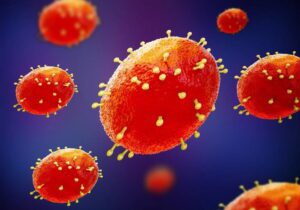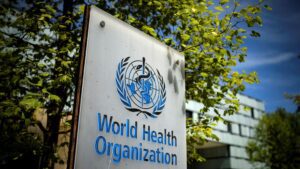
Transit of natural gas through the GTS of Ukraine in June 2022 amounted to 1.25 billion cubic meters. m, which is the minimum monthly volume since 1991.
According to the GTS Operator of Ukraine, the volume of transit for the last month is three times less than in June 2021 (3.72 billion cubic meters), and a quarter lower than in May 2022.
At the same time, Gazprom in June used only 38% of the booked capacity (3.29 billion cubic meters) under a long-term contract. “Combined with the restriction of transit through the Nord Stream 1 gas pipeline, this leads to a “drainage” of the EU gas market and an increase in prices. As a result of the manipulative actions of Gazprom, gas prices in Europe have increased by almost 42% since the beginning of June,” noted in OGTSU.
“Obviously, Russia continues to blackmail Europe with a reduction in gas supplies, which is why its exchange price today already exceeds $1,600. “with the redirection of flows through Ukraine and Poland,” added the head of the operator Sergei Makogon.
As reported, the transit of natural gas through the GTS of Ukraine in 2021 amounted to 41.6 billion cubic meters. m, which is 25.4% less than in 2020 (55.8 billion cubic meters). In general, the transit capacities of the Ukrainian GTS in 2021 were used by less than 30%.
On the Ukrainian gas transport corridor in 2021-2024. there is a mandatory “reservation” for “Gazprom” – 40 billion cubic meters. m (109.6 million cubic meters per day) after 65 billion cubic meters. m (178 million cubic meters/day) in 2020.

On July 1, the “Register of Destruction” is launched in Ukraine. With its help, homeowners whose houses and apartments were damaged as a result of hostilities and enemy shelling will be able to apply for compensation using the Diya application.
At the same time, the question of what the restored houses of Ukrainians will be like, taking into account the new realities and requirements for the housing stock after the war, remains no less important. The Open4business portal discussed these issues with Igor Stakovichenko, an expert in the field of construction and real estate.
“The introduction of the “Register of Destruction” will greatly simplify the procedure for compensating for damages for affected citizens. In fact, such a registry will bring together all the data on the destruction in the country. This will be very useful both for the state of Ukraine and for individual citizens when receiving compensation from the aggressor through international legal institutions,” the expert noted.
As for the new technologies that will be used in the construction of housing, here Stakovichenko recommends first of all to focus on the needs of society.
“What most people want from a new home, whose homes have been destroyed by the war, is reliability and security. The presence of equipped bomb shelters, convenient evacuation routes, autonomy – these are the criteria without which it is difficult to imagine post-war architecture,” Igor Stakovichenko stressed.
In his opinion, a good option would be the restoration and development of numerous recreational areas, some of which were abandoned even before the war. Stakovichenko believes that many Soviet-built sanatoriums and boarding houses, which have been practically not used for all the years of independence, can become a good platform for building eco-friendly settlements with autonomous service, since most of the communications have already been connected to them.
“Environmental friendliness and high technologies during construction will also become the hallmark of post-war architecture in Ukraine. Projects such as “zero energy houses”, or even “mini-power houses”, which are now being widely implemented in the EU, will also be popular after the war,” the expert added.
At the same time, Igor Stakovichenko sees no special prospects for aggressive development in the central areas of large cities, which was practiced before the war.
“Multi-apartment residential complexes in large cities will certainly continue to be built, but whether there is a buyer for such housing is already a question. I think many have already revised or will reconsider their views on comfortable housing as a result of the war,” the expert concluded.
CONSTRUCTION, EXPERT, FINANCY, IGOR STAKOVYCHENKO, MARKETS, REAL ESTATE, TECHNOLOGY, СТАКОВИЧЕНКО

The WHO considers urgent coordinated action necessary in connection with a sharp increase in the number of cases of human infection with monkeypox in Europe, reports the Associated Press.
“Urgent and coordinated action is needed if we are to get out of this situation safely,” said Hans Kluge, WHO Regional Director for Europe.
He noted that monkeypox cases in the European region had tripled in the past two weeks.
Kluge added that 99% of the detected cases are men who have sex with other men. However, he said there are “small numbers” of cases among other people.
Monkeypox is a rare infectious disease most prevalent in remote areas of Central and West Africa. Its symptoms are nausea, fever, rash, itching, and muscle pain.
Earlier, Ukrainian experts analyzed this disease and considered the risks of a pandemic to be extremely low. For more details, watch the program about this on the YouTube channel Club of Experts

Ukrainian exports in January-June 2022 decreased by 23.7% compared to the first half of 2021 and amounted to $22.8 billion, Deputy Economy Minister – Trade Representative of Ukraine Taras Kachka said.
“Over the first half of this year, exports from Ukraine decreased by 23.7% compared to the first half of 2021 and amounted to $22.8 billion. At the same time, export volumes in the second quarter amounted to $8.782 billion, which is 37.4% less than in first quarter of 2022,” Kachka wrote on Facebook.
Compared to the second quarter of last year, the reduction in exports in the second quarter of this year was even more than 45.8% (-$7.42 billion), he noted.
At the same time, in physical volumes, the decrease in quarterly exports was even more significant – 55.6%, that is, by 20.8 million tons. In the second quarter, we exported 16.6 million tons of cargo,” Taras Kachka said.
He added that the main reason for the fall in exports is the blocking of Ukraine’s seaports by Russia.
“The reduction in shipping by sea in the second quarter compared to the first amounted to 86.5% (minus 21.6 million tons). At the same time, it is important to note that the situation with exports has stabilized and even improved by months,” the trade representative emphasized.
Exports resumed growth in May and June after a sharp fall in March. At the same time, exports grew both in terms of value and volume, according to data from the Ministry of Economy. So, in June, Ukraine exported 5.8 million tons of cargo worth $3.177 billion.
“At the same time, one should pay attention to the fact that in June there was a significant decrease in the export of iron ore – 1.75 million tons against 2.27 million tons in May. At the same time, exports of sunflower seeds increased significantly to 537 thousand tons in June. At the same time, oil remains the most profitable export item – $437 million,” Kachka said.
According to him, the top 10 export commodity positions of Ukraine in June included: oil, corn, sunflower seeds, ore, steel (semi-finished products), wires, poultry meat, pipes, cast iron, soybeans.
“Trade remains diversified. Exports of 223 items at the four-digit level exceeded $1 million during the month. Geographically, exports are fully focused on the EU. 78% of our exports in the second quarter of 2022 were to the EU. The total value of exports to the EU in the second quarter is $6 .86 billion, up 6.4% from the second quarter of last year,” the sales representative wrote.
However, he noted that trade with other countries of the world decreased in April-June compared to the second quarter of 2021 by 80%.

Wheat and its mixture with rye (meslin) are excluded from the list of goods whose export is subject to licensing, the Cabinet of Ministers made the corresponding decision at a meeting on Friday, Taras Melnychuk, a government representative in parliament, said.
“The commodity items “Oats” and “Mineral or chemical, nitrogen fertilizers” have been excluded from the volume of quotas of goods whose export is subject to licensing. These items are included in the List of goods whose export is subject to licensing,” he added in his telegram message.
As reported, on March 7, the Government of Ukraine expanded the list of goods the Ministry of Economy will issue export permits for: wheat, corn, poultry meat, chicken eggs and sunflower oil were included in the list of licensed exports.
Already in March, corn and sunflower oil were excluded from this list, but wheat remained, despite the requests of market participants.
As for oats, on March 5, a ban was introduced on its export in the form of a zero quota.
Nitrogen fertilizers were also banned for export at first, but at the end of March the government allowed their export within the quarterly quota of 210,000 tons, or 70,000 tons per month.
In June this year, Ukraine managed to increase grain exports by 23% by May – up to 1.4 million tons. In terms of crops, corn accounted for 86%, wheat – 10%, barley – 3%.

The war gave an additional impetus to the implementation of the healthcare system reform in the process of post-war reconstruction of Ukraine, Joseph Kutzin, the Coordinator for Health Financing Policy at the World Health Organization (WHO), the author of recommendations on resuming the healthcare system in Ukraine, says.
“The direction of reforms begun in 2016 is consistent with international good practice. The war does not change this; indeed, it should provide further impetus to carry the reforms to full implementation. We strongly believe in the need to continue and deepen health reforms in Ukraine,” he said in an interview with Interfax-Ukraine.
“Ukraine’s health financing reforms to date support the Universal Health Coverage (UHC) goals but can be taken further. Its strength is that the main funding source for the system is general tax revenues, and that all Ukrainians are entitled to services under the Program of Medical Guarantees (PMGs). The pooling of funds for the PMGs at national level in the NHSU enables the system to direct resources to where the needs are. Even before the invasion of February 24, getting better results from available public spending (efficiency) was crucial,” he said.